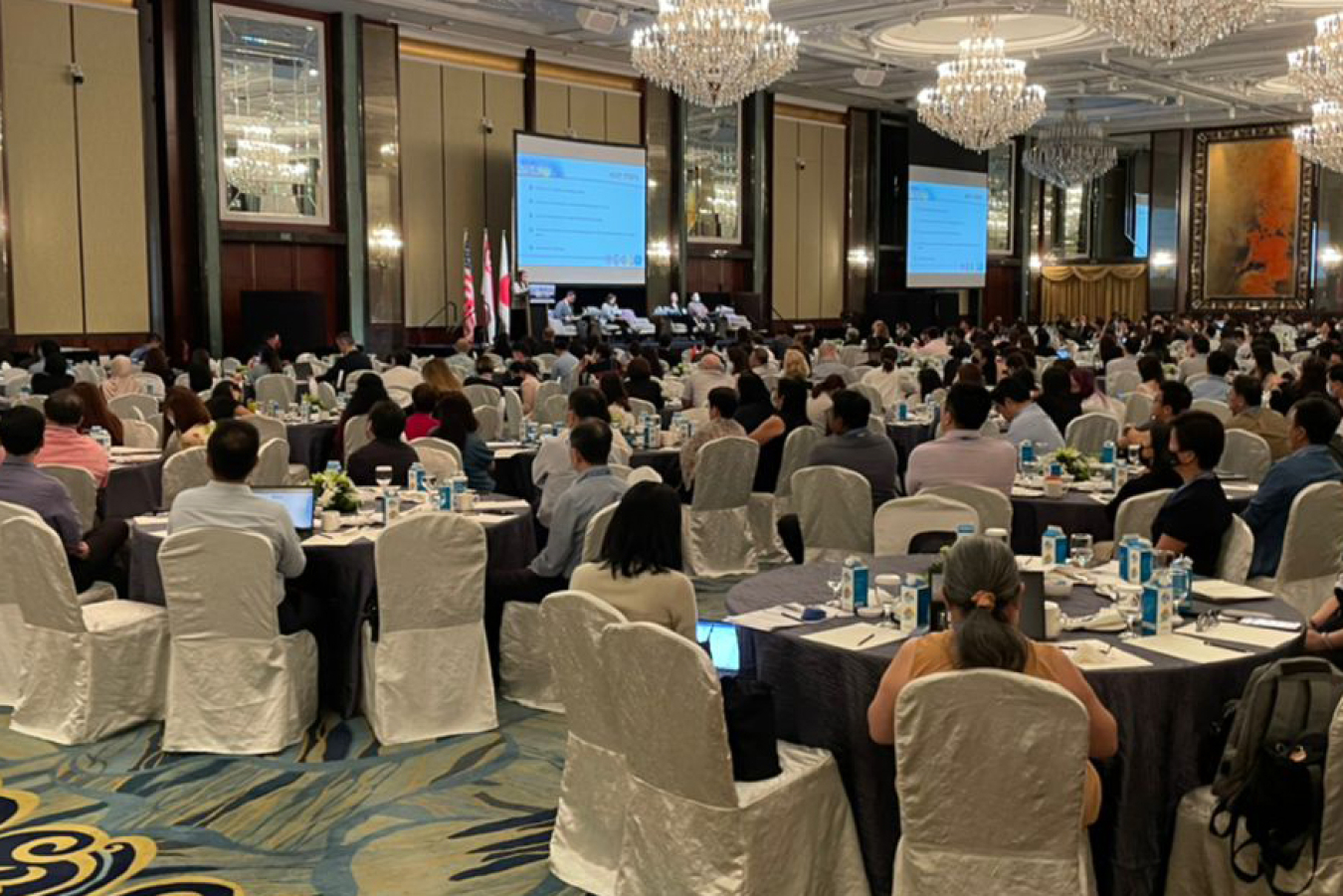Several governments and U.S. federal agencies came together in Singapore to discuss strategic trade controls best practices and highlight updates to export control laws and regulations across the region.
National Nuclear Security Administration
September 28, 2022
Earlier this month, several governments and U.S. federal agencies came together in Singapore to discuss strategic trade controls best practices and highlight updates to export control laws and regulations across the region.
On Sept. 12 and 13, officials from NNSA, the Department of Commerce’s Bureau of Industry and Security, and the Department of State’s Export Control and Related Border Security partnered with Singapore Customs and Japan’s Ministry of Economy, Trade and Industry to organize the 10th annual Joint Industry Outreach Seminar on Strategic Trade Management in Singapore.
By taking the initiative to identify, characterize, and prepare for emerging export control challenges, Japan, Singapore, and NNSA will be better prepared to collectively respond to unanticipated events when they occur.
The event attracted more than 500 government and industry attendees and achieved its objective of connecting government, industry, and academic representatives to share strategic trade control best practices and highlight updates to export control laws and regulations across the region.
Senior officials from 14 countries, the United Nations, and the European Union, as well as regional business leaders provided export control updates from their countries and contributed to in-depth panel discussions. Key topics discussed included controlling emerging technologies, critical technology protection, internal compliance program best practices, industry compliance with complex regulations, and enforcement for non-compliance.
NNSA Deputy Administrator Corey Hinderstein commended seminar partner Singapore and event partner Japan for their work in this regard.
“By taking the initiative to identify, characterize, and prepare for emerging export control challenges, Japan, Singapore, and NNSA will be better prepared to collectively respond to unanticipated events when they occur,” she said.
“The strong turnout at this year’s event underscores our enduring goal of strengthening strategic trade management and implementing effective export controls,” Under Secretary of State for Arms Control and International Security Bonnie Jenkins said. “We take these tasks on together as government officials, private sector and industry representatives, and members of academia – for our shared security and shared prosperity.”
“The opportunity to engage with so many critical partners at this moment – when, as Secretary of Commerce Gina Raimondo has said, export controls are at the “red-hot center” of our national security debates – is incredibly valuable,” said Assistant Secretary of Commerce for Export Administration Thea D. Rozman Kendler. “I look forward to continuing our coordination and collaboration as we continue the global response to Russia’s brutal invasion of Ukraine, and as we continue to build our export control partnerships to meet the challenges and opportunities of the future.”
The United States has collaborated with Singapore for 20 years to share best practices on effectively managing the flow of proliferation-sensitive goods and technologies. The U.S. Departments of Commerce, Energy, and State are committed to continuing this tradition and furthering progress on effective and efficient strategic trade control implementation in Singapore and the Southeast Asia region.

